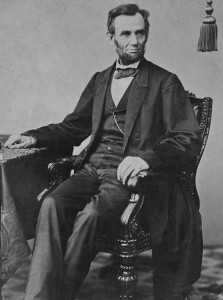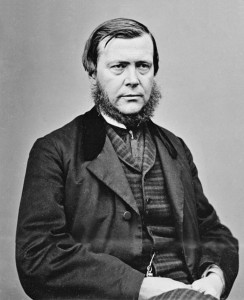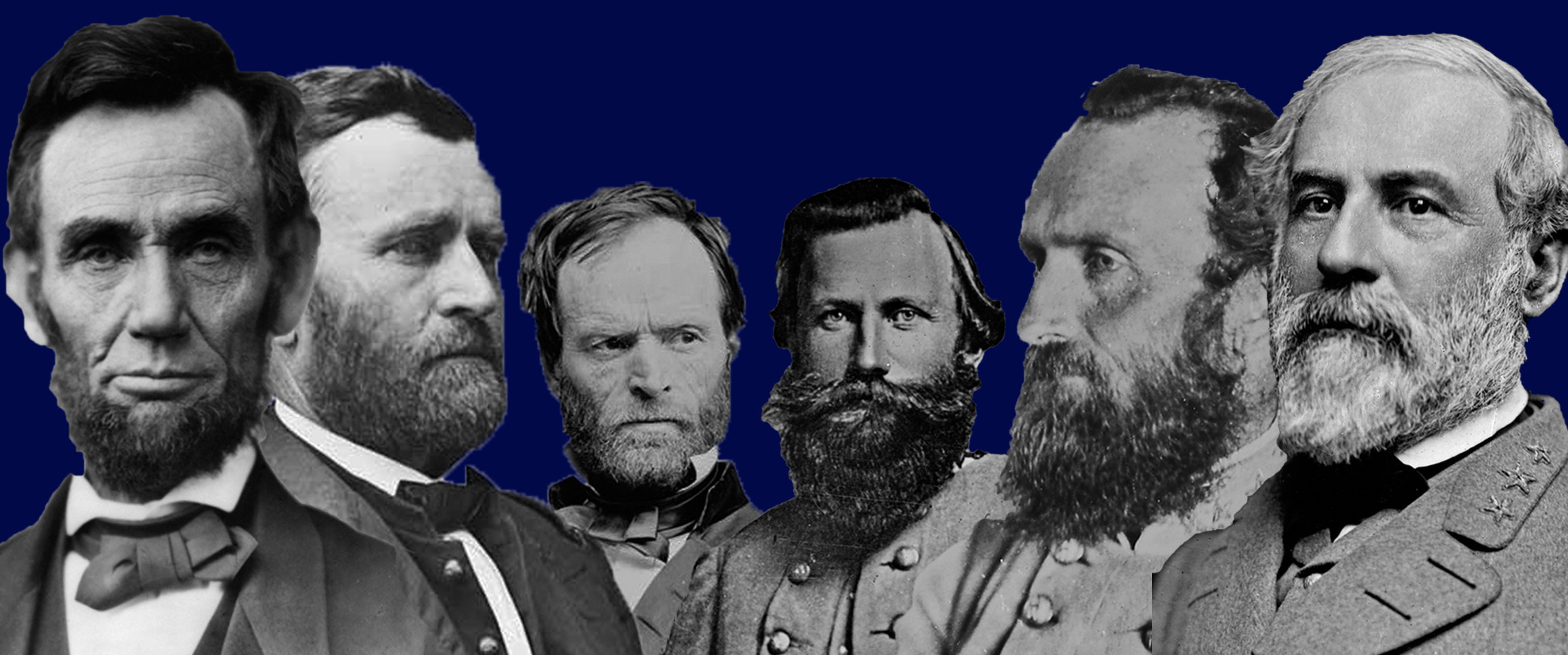
As Abraham Lincoln rose to give the Gettysburg Address on November 19, 1863, his face had a “sad, mournful, almost haggard” expression according to Clark E. Carr, a member of National Cemetery Commission. Reciting the speech eloquently and without difficulty, no one – including Lincoln – realized at the time that he was in the early stages of a smallpox infection.
On the train back to Washington that evening, Lincoln became feverish, weak, and troubled by a headache. His personal servant, William B. Johnson, applied a wet towel to the president’s face to help allay the fever and pain. Back in Washington, Lincoln’s sickness progressed. He had a high fever, severe headaches with back pain, and profound weakness. On the fourth day of illness, a scarlet rash appeared on his body. Lincoln’s physician, Dr. Robert K. Stone, first thought the president had scarlatina (scarlet fever), but when small, widely scattered blisters appeared the next day, he became more concerned.
Dr. Washington Van Bibber from Baltimore, Maryland, was called in by Stone to consult on the case. After Van Bibber finished examining Lincoln, the president asked for his diagnosis. “Mr. President,” the doctor said, “if I was to give a name to your malady, I should say that you have a touch of the varioloid.”
“Then am I to understand that I have the smallpox?” Lincoln asked. Van Bibber said yes, prompting Lincoln to quip: “For once in my life as President, I find myself in a position to give everybody something.”

Lincoln’s Personal Physician
The term “varioloid” was a common 19th century name for smallpox; but in the following century, the term would be used more specifically to describe milder forms of the disease that occurred in previously vaccinated individuals. There is no evidence, however, that Lincoln had ever received a smallpox vaccine during his lifetime.
In the days following the Gettysburg Address, nervous staffers kept a close vigil on the president. William O. Stoddard, one of Lincoln’s secretaries, recorded in his memoirs: “…the White House has suddenly been turned into a smallpox hospital, with a certain degree of penetrable quarantine.” John Nicolay and John Hay, Lincoln’s private secretaries, restricted visitation while Dr. Stone vaccinated all the White House staff and residents against smallpox. Stoddard remembered having “mournful consultations” with Nicolay and Hay “over the idea that all the country would go to ruin if Abraham Lincoln should die of the dread disease….” On November 26, Hay cautiously noted in his diary: “The President quite unwell.”
Fortunately, over the next few days, Lincoln’s fever abated and the skin lesions began to peel and itch. The National Republican reported on November 28, 1863:
We are glad to be able to announce the President is much better today. The fever from which he has suffered has left him. Thursday and Thursday night his suffering was chiefly from severe pains in the head. Yesterday and the day before, he was not permitted by his physician to hold any interviews – even with the members of his cabinet. It is hoped that in a day or two he will gain sufficient strength to resume his official duties.
Although still weak and emaciated, Lincoln had improved enough by December 6 that a reporter from the Chicago Tribune was allowed to visit. “The President has not yet quite recovered his health,” the story read on December 11, “his face is slightly marked, but in a few days he will be quite recovered.”
Although Lincoln would experience a complete recovery from the “dread disease” (he was well enough to attend a play at Ford’s Theatre on December 15, 1863), his servant William Johnson was not so fortunate. At some point over the course of Lincoln’s illness, Johnson also came down with smallpox. By mid-January, he had succumbed to the disease with Lincoln paying for Johnson’s burial out of his own pocket. Although Johnson had attended the president early in his illness, Lincoln did not believe he was the source of the servant’s infection. “He did not catch it from me, however; at least I think not,” Lincoln remarked to another reporter.
Lincoln may have been correct. Washington, D.C. was in the midst of a widespread smallpox outbreak at the time and no one can be sure when and where Lincoln and Johnson became exposed. In fact, in the week before Lincoln left for Gettysburg, his 10-year-old son, Tad, had been bed-ridden with an illness consisting of a fever and a “scarlet” rash.
History is full of what-ifs. Had the Gettysburg ceremony been held one or two days later than November 19, 1863, Lincoln would likely have been too ill to attend and deliver the Gettysburg Address. Or, if he had succumbed to smallpox as his servant did, how would the remainder of the Civil War have played out? One can only speculate.
References:
Goldman, Armond S., and Frank C. Schmalstieg. “Abraham Lincoln’s Gettysburg Illness.” Journal of Medical Biography 15 (2007): 104-110.
Burlingame, Michael and John R. Turner Ettlinger, eds. Inside Lincoln’s White House: The Complete Civil War Diary of John Hay. Carbondale, IL: Southern Illinois University Press, 1997.
Stoddard, William O. Inside the White House in War Times. New York: Charles L. Webster & Co., 1892.

This remains a fascinating story, BUT, the alleged small pox epidemic not withstanding, given the constellation of signs, shouldn’t varicella (aka chicken pox) be considered?
The smallpox rash and that of chicken pox are typically distinctly different enough that I assume 19th century physicians, who saw both frequently, would be unlikely to mistake one for the other.